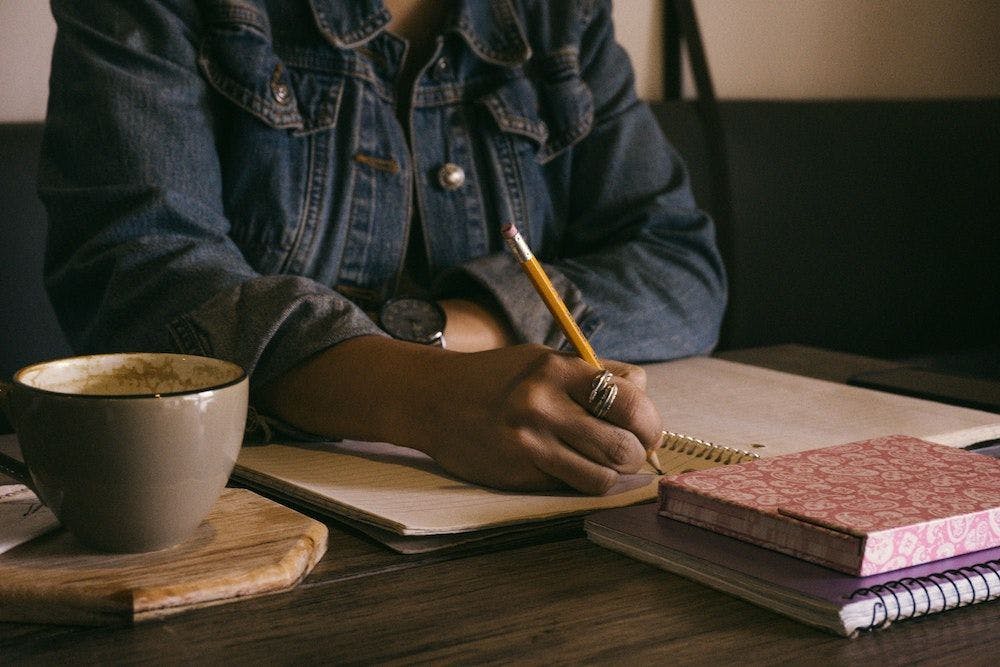4 journaling techniques to support your mental health
updated on Oct 10, 2023

If you go into your bedside drawer right now, how many untouched notebooks would you find? It’s time to put those journals to good use, as we explore how they can support our mental health
There are many ways to use a notebook, from the traditional uses such as keeping a diary or writing to-do lists, to the more crafty uses such as scrapbooking. But have you ever considered using a notebook specifically to benefit your mental health?
According to the Univerity of Rochester Medical Center, journaling boosts our wellbeing in several ways, including managing anxiety, reducing stress, and coping with depression. The simple act of writing down our thoughts and feelings can help us prioritise our problems and manage any intrusive thoughts throughout the day, as well as monitor our day-to-day mental health over long periods of time.
However, there is more than one way to use a notebook to maintain our mental health, and there’s no reason why you can’t experiment with an empty notebook to find out what works best for you. It’s time to put pen to paper, and discover the four creative ways you can use journals to support your mental health.
Bullet journaling
Bullet journaling is a form of organisation that was invented by Ryder Carroll in 2013. Instead of having separate lists of things strewn around the house or on your phone, a bullet journal allows you to keep track of all this information in one notebook. It’s effectively a planner, a to-do list, and a diary all in one. You can document anything from your weekly food shop to drawing a table to keep track of your mood throughout each month.

To specifically use a bullet journal to monitor your mental health, try a daily habit tracker. Draw a table split into 28–31 days, depending on the number of days in the month, and check off each day whenever you do something you want to encourage yourself to do. For example, drink eight glasses of water, get some exercise, eat a healthy lunch, call a friend, etc. You can find lots of inspiration for ways to monitor your mental health with a bullet journal on Pinterest and YouTube as well.
Junk journal
Clutter can be a major trigger for anxiety, but it can be helpfully stored away with a notebook. Find those small bits and pieces that you’re keeping stashed around your home – such as cinema tickets, receipts, photos, labels, and other mementoes – and glue or Sellotape them into a junk journal. Alternatively, if an item is double-sided or something that you might want to pull out one day, glue an envelope into your junk journal and place the item inside the envelope for safe-keeping. Now you don’t have to throw away any good memories, but you won’t have clutter piling up all over the place either.
Vision book
You may have heard of vision boards, but have you ever heard of a vision book? Our dreams and desires can change throughout our lives, and sometimes we have more than one vision at one time. I, for one, know that whenever I’m feeling down I often end up thinking about the things I haven’t achieved in my life. So, to help with this I create a vision page in my vision book. Not only is it a helpful creative outlet, which is a great mood elevator, it’s also a helpful way to feel proactive at my lowest moments. To create your own vision book, find an A4 or A5 notebook and start writing down your dreams. Cut out pictures or headlines from newspapers or magazines and stick them into the notebook to create a collage of inspiring images for you to look at whenever you feel like you need to be grounded.
The simple act of writing down our thoughts and feelings can help us prioritise our problems
Gratitude journal
A gratitude journal can be a great way to maintain your mental health, particularly when you’re really struggling with low mood or anxiety. To start with, find an empty notebook and write down one thing that happened during your day that you’re grateful for. It can be as small as having a bacon sandwich for breakfast, or not arriving late for work! But it can also be as big as a relationship with a loved one, or having a breakthrough in therapy. The reason for having a gratitude journal is to encourage you to write down a daily note expressing positivity, putting any intrusive, negative thoughts to one side.
There are many ways to use a notebook to maintain your mental health, you just have to find the way that works for you. From writing lists to doodling, keeping a daily journal, or summarising your month in bullet points, the next time you come across an empty notebook, pick it up and dive in – you might just be surprised at what you discover about yourself.

